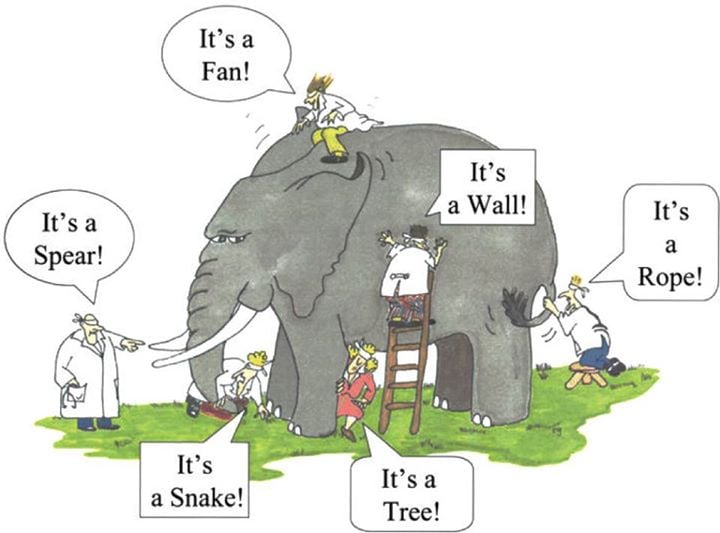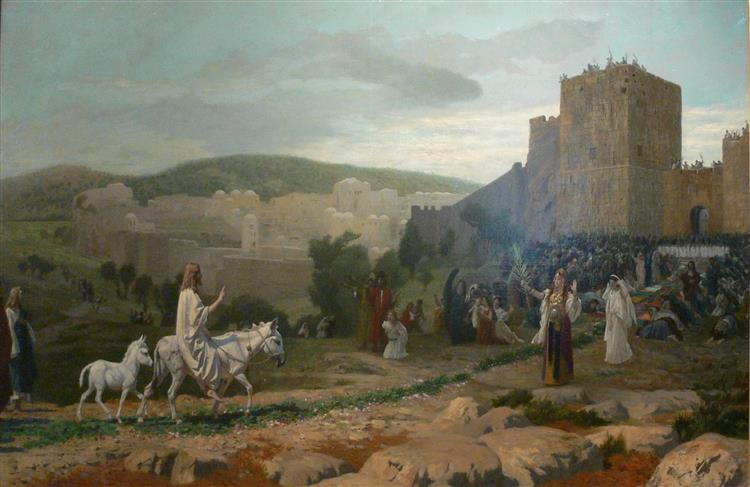* * * *

* * * *
October 30, 2024 – Halloween is coming up, and this year it seems highly appropriate.
That’s because five days after Halloween comes the election, and a day after that half the voters will feel like they’ve gotten a treat. The other half will feel bitter, like they’ve been “tricked.” (Interesting etymology, the word can mean a “cunning or skillful act or scheme intended to deceive or outwit someone.” Or some country?) Which brings up some of the harder parts of trying to be a good Christian.
Regardless of who wins, our ongoing political polarization will likely continue. Which brings up one duty for good Christians, from 2d Corinthians 5:18: “All this is from God, who reconciled us to himself through Christ and gave us the ministry of reconciliation.” (As in, to “restore friendly relations between.”) Thus the first big question: “Shouldn’t the group that claims to be more Christian make the first move to reconciling, and ending that polarization?”
But that’s not the hardest part. The hardest part of being a good Christian is the part that says “love your enemy,” what Jesus said to do in Matthew 5:44. (“Geez, what a Radical! No wonder He ended up crucified…”) Beyond that, Paul said in Romans 5:6 that Christ died for The Ungodly. So whoever you think that”ungodly” political enemy is, that’s exactly who Jesus died for.
Which means that no matter how rude or obnoxious a political opponent may act, you are duty-bound – as a good Christian – to say to yourself, “Somewhere in there is a child of Christ. Someone else that Jesus died for.” So like I said, many times being a good Christian is a real pain. (Maybe that’s why so many “Christians” today don’t follow Matthew 5:44?)
Which brings up praying, “of which I’m sure God has heard a lot of” over the past few months. Millions of people asking God – or begging, or pleading – to help Their Guy win. (Which makes me wonder, “Does He ever get tired all that whining?”) Which brings up the next big question: How should we pray when it comes to the upcoming election?
For starters there’s Romans 8:26: The Holy Spirit “helps us in our weakness. We do not know what we ought to pray for, but the Spirit himself intercedes for us through wordless groans.” Of course we could just pray, “Lord, please help My Candidate win,” but wouldn’t that be the same as asking Him to help your favorite sports team win? And that wouldn’t work in court.
Lawyers can’t just go in and ask a Judge for a particular result as a special favor. They have to give a compelling rationale, a good reason for the Judge to grant the request. So one effective prayer might be to ask for the result that will bring more people to Jesus. On the flip side, we could pray that God won’t help a candidate whose election will drive even more people away from The Faith. (Church membership has been declining for years now. “I wonder why?”)
In other words, “arguing with God.” Giving Him reasons to grant your request, like Abraham did in Genesis 18:16-33. (“Abraham pleads for Sodom.”) Or like Moses did in response to God’s threat in Exodus 32:10. (To destroy Israel because of the Golden Calf.) Or like Jacob did back in Genesis 32:22-32. (Just don’t be surprised if you end up with your name changed.) Bottom line? We need to figure out some good legal arguments to help “Our Guy” get elected.
But in the end it may come down to “Father, if you are willing, please take this cup of suffering away from me[;] nevertheless not My will, but Yours, be done.” (Luke 22:42.)
Still, wouldn’t it be nice if that “more Christian group” took those hard starting steps toward stopping our widespread, ongoing polarization? If Americans started reconciling with each other? (Per 2d Corinthians 5:18.) Then we wouldn’t be so much like those Blind men and an elephant in the parable. Each one was partly right but they were all mostly wrong. Why? Because instead of comparing notes and sharing insights – what we used to call Dialectic – they each insisted that their view was the only Truth, the one and only accurate description. I’ll write more on Halloween and “All Saints” in a few days. Meanwhile, something to think about…
* * * *

* * * *
The upper image, courtesy of Wikipedia, is Jacob Wrestling with the Angel, by Alexander Louis Leloir (1865). Leloir (1843-1884), was a a French painter specializing in genre and history paintings. His younger brother was painter and playwright Maurice Leloir. The original caption: “‘Jacob wrestling with the Angel’ – as a result of which his name got changed to Israel.”
The Book of Common Prayer reference: The “corporate-mystical” prayer is on page 339, the post-communion prayer for Holy Eucharist, Rite I.
“Feast days” are designated days on the liturgical (church) calendar “set aside to commemorate events, saints, or doctrines that are important in the life of the Church. These can range from Solemnities, which are the highest-ranking feast days like Easter and Christmas, to optional memorials that celebrate lesser-known saints.” Feast Days: Celebrating the Church’s Calendar.
Re: Polarization in America. The link Political Polarization is Not Unique to the U.S., but its Causes are noted, “what is missing from our politics is a simple respect from both sides, at a minimum because people on both sides of a debate can be right.” I addressed that idea in 2018’s On St. James (“10/23”) – and the 7 blind men. (Each man was partly right but mostly wrong, because each insisted his view was the only valid one.) Then there’s U.S. is polarizing faster than other democracies, study finds. But see also Local Government Navigates Negative Impact of Political Polarization Better than Federal Government: “An overwhelming majority of local government leaders (87 percent) believes polarization is hurting the country but far fewer (31 percent) see negative effects in their own communities.”
Re: Decline in attendance. See The Real Reason Churches Are in Decline | Church & Culture, The State of Church Membership: Trends and Statistics [2024], and Behind Gallup’s portrait of church decline.
Re: God as Judge. 76 Bible Verses about God, As Judge – Online Bible.
Re: Case study and rationale. Law School Case Briefs: Your Ultimate Guide – Barbri: “why the court arrived at its holding. This section of the case brief may be the most important, because you must understand the court’s reasoning to be able to analyze it and apply it to other situations — such as those you will see on the bar exam and in real life scenarios when you are a practicing attorney.”
Re: “Arguing.” From 2014, On arguing with God. From April 2016, More on “arguing with God” – and St. Mark as Cinderella. And April 2018, “Trump-humping” – and Christians arguing with each other.
Re: Luke 22:42. I combined the New International and New King James Versions to make the quote more relevant. Also, in a sense Jesus mirrored what Shadrach, Meshach and Abednego said when threatened with being thrown into the flames: “If our God whom we serve is able to deliver us, he will deliver us from the furnace of blazing fire and out of your hand, O king. But if not…” From my April 2015 post, Shadrach “et al.” and the Fiery Furnace.
Just as an aside, in November 2021 – and in my companion blog – I posted Donald Trump – the newest “Undead Revenant?” It mentioned that at the time “Trump’s star seems to be rising once again,” thus raising the possibility that he just might get elected to a second term.
But once again I tried to look on the bright side. That “freed from a need to pander to his wacko base,” Trump might develop a conscience and start thinking seriously about his legacy.
Which might still happen, but I hope we don’t have to find out. (Which may not be a good-Christian thought, but like I said, it’s a real pain sometimes.)
The lower image is courtesy of Blind Men And The Elephant – Image Results. See also Blind men and an elephant – Wikipedia, for more on the parable. I used the image to lead off last year’s Between Halloween and Thanksgiving – 2023! My caption: “If these Men had compared notes – not argued – they’d have a better understanding” – a more accurate view of the elephant, and by extension, a better way of understanding God. (By sharing insights instead of yelling at each other.) For another “between” post see Psalm 137, “If I forget thee, O Jerusalem” – 2021, from November 12, two years ago.
* * * *


